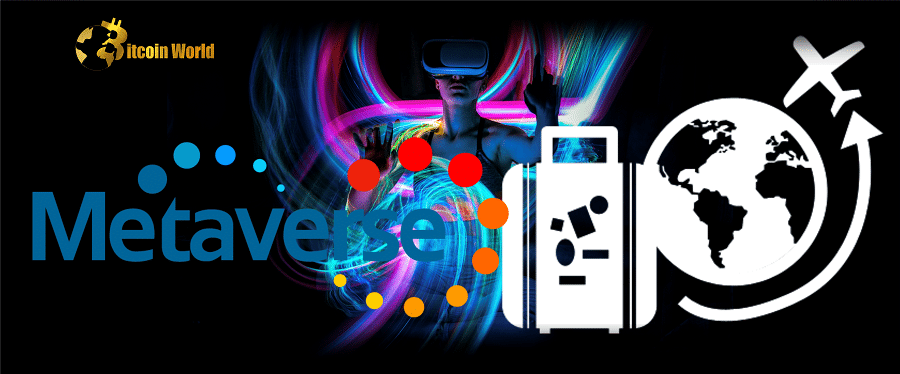According to a survey of 24,179 respondents from 32 countries, nearly half, or 43%, intend to use virtual reality to inspire their decisions.
As borders reopen as a result of prolonged COVID-induced travel restrictions, the Metaverse, one of the most recent sub-crypto ecosystems, is set to assist travelers in deciding which destinations they want to visit in person, according to a new survey conducted by Booking.com personally.
Booking.com, a popular online travel agency, surveyed 24,179 respondents from 32 countries, revealing travelers’ strong interest in virtually exploring destinations as they plan their itinerary. People most likely to try out metaverse travel experiences were Gen Z (45%) and Millennials (43%).
Almost half of the respondents (43%), confirmed their intention to use virtual reality to inspire their decisions. Approximately 4574 participants in this group believe that traveling to new places can only be done virtually.
Furthermore, more than 35% of respondents are willing to spend multiple days in the Metaverse to get a feel for the environments available in popular destinations. According to Booking.com, haptic feedback and other supporting technologies will help improve this experience by allowing users to experience sandy beaches and tropical sun without leaving their rooms.
However, 60% of respondents believe that the experiences provided by the Metaverse and virtual technologies do not compare to in-person experiences. So Paulo (Brazil), Pondicherry (India), Hobart (Australia), and Bolzano (Italy) are among the most popular destinations for 2023. (Italy).
Microsoft’s plan to enter the Metaverse business was stymied after the US Federal Trade Commission (FTC) sought to block the acquisition of Activision Blizzard.
The $69 billion acquisition of Activision Blizzard would have played a “key role in the development of metaverse platforms,” according to Microsoft CEO and chairman Satya Nadella. The FTC, on the other hand, highlighted Microsoft’s anti-competitive practices, in which the company limited the distribution of console games after acquiring rival gaming companies.














